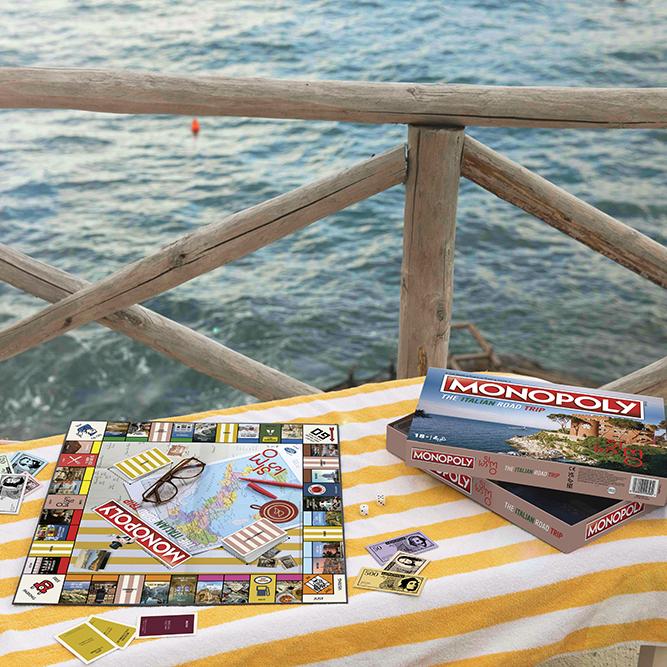Board games aren’t the sort of entertainment people tend to get up in arms about — but in Italy, certain themes are never child’s play.
When the board game La Famiglia: The Great Mafia War hit the Italian market last month, it sparked outrage.
Launched by a German company, the game comes in packaging illustrated with the requisite “postcard Italy” images of rolling hills, hay bales and cypress trees and features two well-coiffed men on a motorbike escaping a burning villa — with one of the figures carrying a baseball bat. Set during the height of the merciless mafia battles that terrorized Sicily in the 1980s and ’90s, La Famiglia pits players against each other as competing mob families by using “fighters and bombs” in order to “finally dominate Sicily.”
It won a top gaming-world prize in France last year, but critics like Maria Falcone, the sister of slain anti-mafia judge Giovanni Falcone, say it promotes harmful cliches and trivializes suffering.
Ms. Falcone told Corriere della Sera, “A game like this offends the memory of all those who contributed to freeing this land [of organized crime].”
But we could probably all use more at-home, screen-free fun. So instead, turn to these four Italophile-approved games that don’t rely on tired tropes.
Monopoly ISSIMO
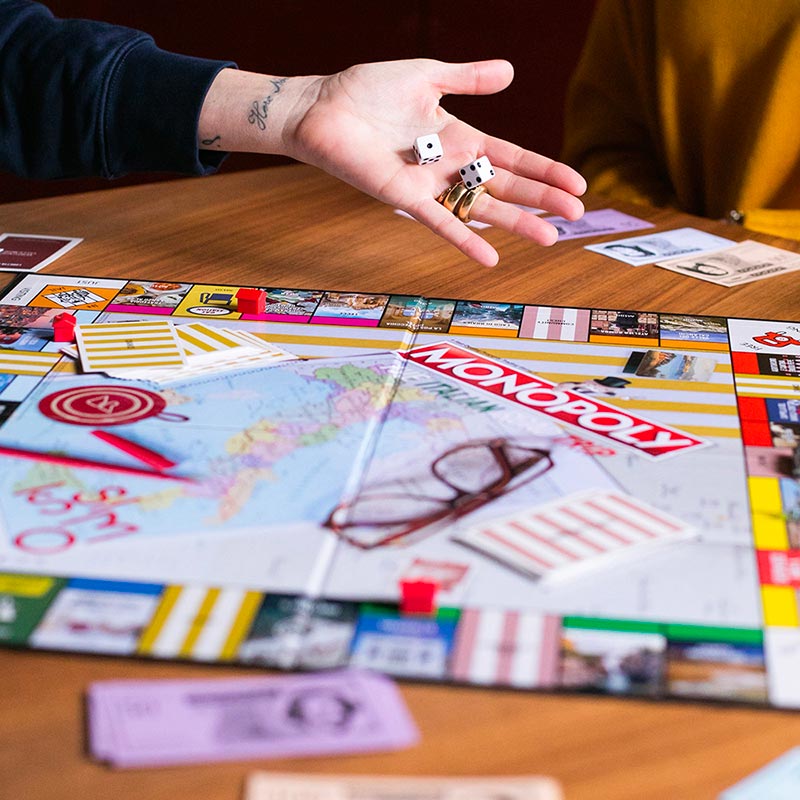
Take a spin around Italy behind the wheel of a Maserati Levante with the ISSIMO edition of Monopoly, a collectible made in collaboration with the iconic Pellicano Hotels group. This classic board game with a twist takes players on a journey to uncover all of the best people, places and things the bel paese has to offer. At the roll of a die, rather than buying up Atlantic City real estate or collecting get-out-of-jail-free cards, you can discover iconic locations, hidden treasures, “meet” traditional artisans, “taste” delicious food and “sip” fantastic wines. Pick up Community Chest and Chance cards to learn more about famous Italian personalities and storied cultural traditions. ISSIMO includes a collector’s map which “doubles as a detailed and curated insider guide to over 100 cultural pit stops, artisans and designers, and food purveyors of this incredible land.”. You can pick up this one-of-a-kind collector’s copy online here. Other Italy-themed Monopoly editions available through various retailers include Winning Moves Monopoly Venice, Rome, Milan, Naples and Sardinia.
Virtù
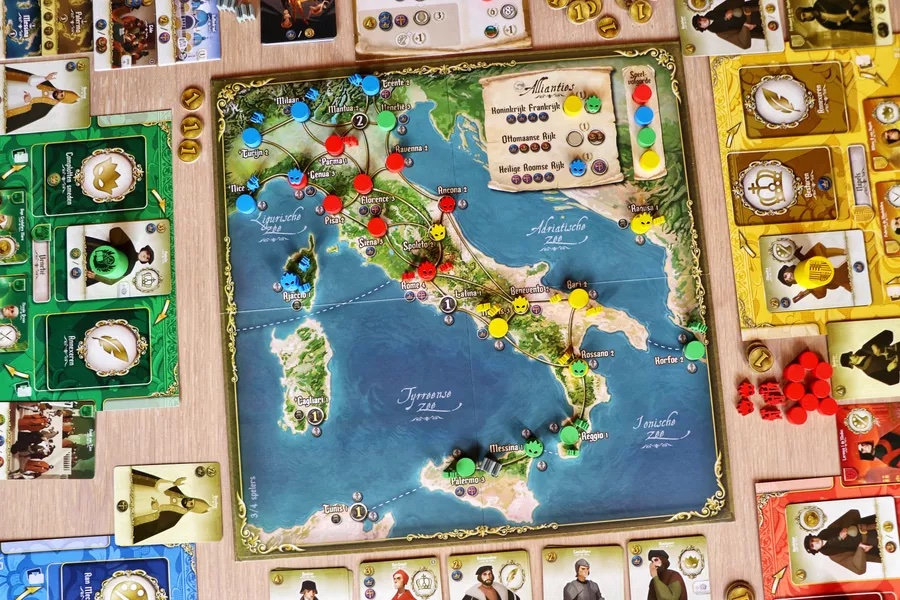
Virtù (virtue in English) is a Machiavellian concept pointing to the ability to lead or to achieve great things in a civic sense. In the game — which is not unlike a Renaissance-era Survivor — each player embodies a different powerful Italian city of the 15th century: either Naples, Florence, Venice or Milan, with each competing for the right to reign over the peninsula after the upheaval that came with the end of the Middle Ages. Players must not only make conquests but also build alliances with neighboring kingdoms and warring factions. The winner is the one who has the audacity and fortitude to become the master of Italy.
Murano
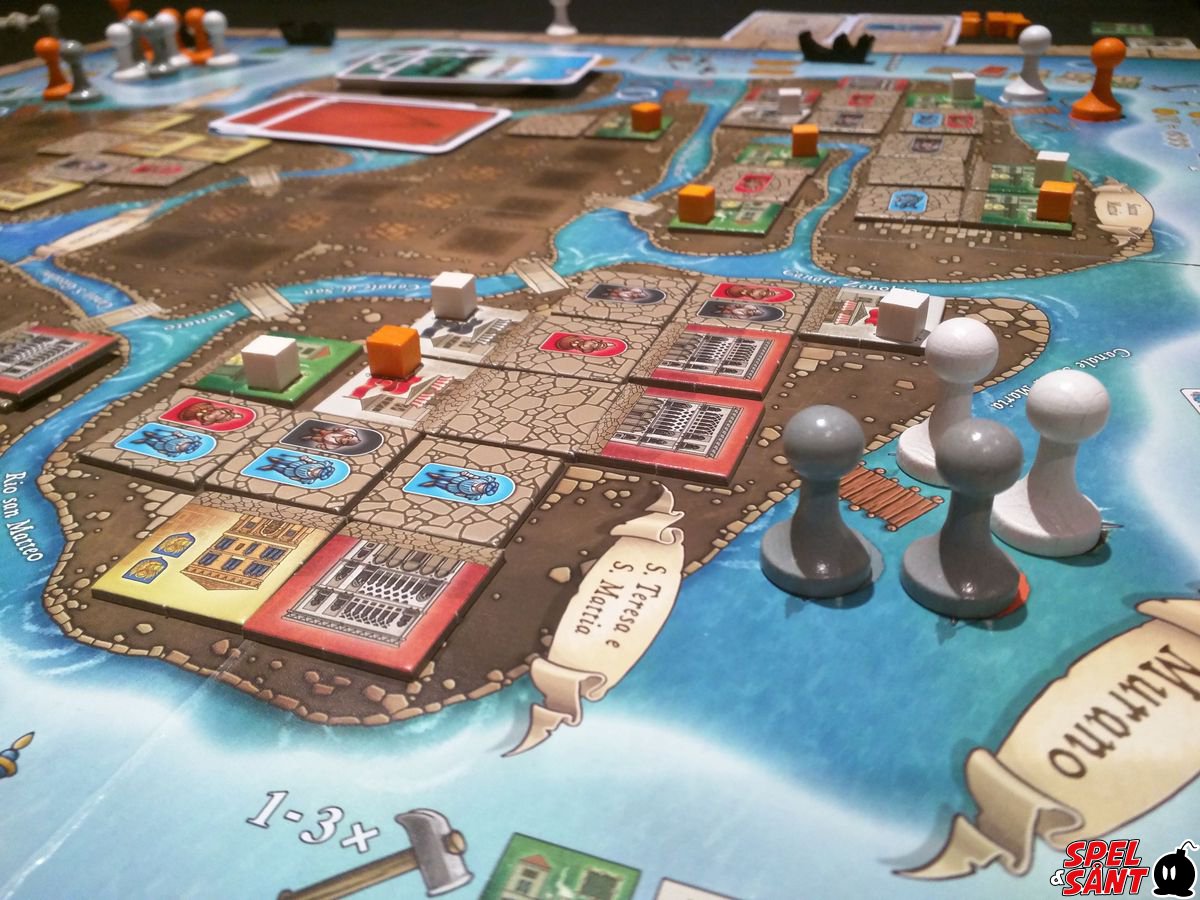
Want to be transported to the Venetian lagoon around your card table? In the Murano game, named for the island famous for its Venetian glassblowing tradition, players compete to create the most thriving factory. Hiring skilled workers and making other strategic decisions are part and parcel of the game; the winner is declared the top merchant of Murano. Designed for two to four players, it’s suitable for ages 10 and older, and great for families.
Tabula
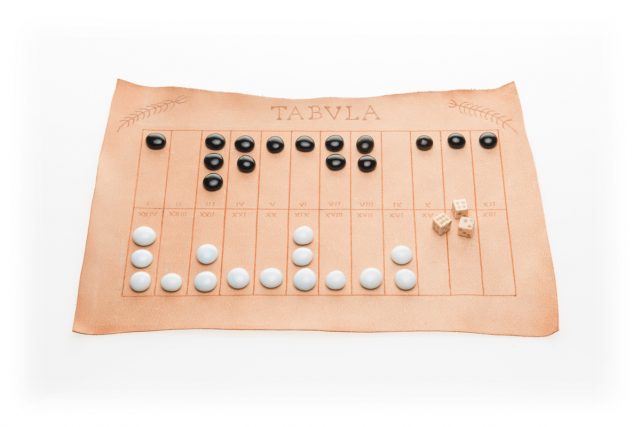
Tabula, a race and strategy board game, is an ancestor of modern backgammon. Most likely a derivative of the similar Duodecim Scripta — a popular boardgame of the Roman Empire — the two-player game combines strategy, speed and luck by moving black and white glass pieces across a “board” made of pyro-engraved leather, according to the rolling of three wooden dice. Tabula comes with a brochure explaining the history of the game and its rules, which were believed to be the same ones played by Roman emperor Zeno (474 BCE-91 CE). Check out historygames.it for this and other games developed by a team of archaeologists in cooperation with artisans versed in ancient Roman techniques.
